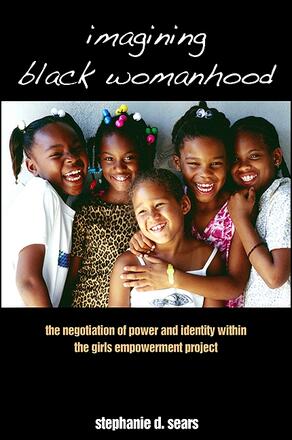
Imagining Black Womanhood
The Negotiation of Power and Identity within the Girls Empowerment Project
Alternative formats available from:
Examines how Black girls and women negotiate and resist dominant stereotypes in the context of an Afrocentric youth organization for at-risk girls in the Bay Area.
Description
Imagining Black Womanhood illuminates the experiences of the women and girls of the Girls Empowerment Project, an Afrocentric, womanist, single sex after-school program located in one of the Bay Area's largest and most impoverished housing developments. Stephanie Sears carefully examines the stakes of the complex negotiations of Black womanhood for both the girls served by the project and for the women who staffed it. Rather than a multigenerational alliance committed to women's and girls' empowerment, the women and girls often appeared to struggle against each other, with the girls' "politics of respect" often in conflict with the staff's "politics of respectability," a conflict especially highlighted in the public contexts of dance performances. This ground-breaking case study offers significant insights into practices of resistance, identity work, youth empowerment, cultural politics and organizational power.
Stephanie D. Sears is Associate Professor of Sociology at the University of San Francisco.
Reviews
"In this sophisticated, engaging ethnography, Sears … offers a theoretically sharp analysis of the power dynamics across generations and social classes among black women, highlighting how the cultural representation of 'urban girl' at risk for pregnancy and poverty legitimates formal control over black girls' bodies and sexualities … Skillfully drawing out the issues of power and resistance, cultural and organizational demands, and generational change, Sears offers a superb look at sexual politics in an intersectional race/gender context … Highly recommended. " — CHOICE
"This book makes an important contribution by focusing on girls of color and an organization devoted to girls of color, exposing the complexities and contradictions that mark the way power, race, and gender become operationalized in practice. Well written and with rich quotes, it's a wonderful read. " — Mary P. Sheridan, author of Girls, Feminism, and Grassroots Literacies: Activism in the GirlZone